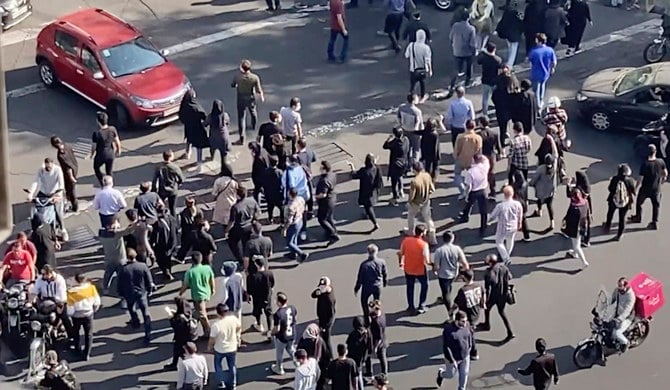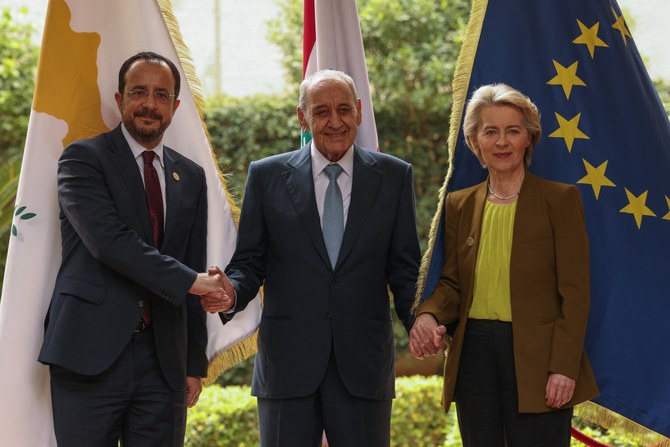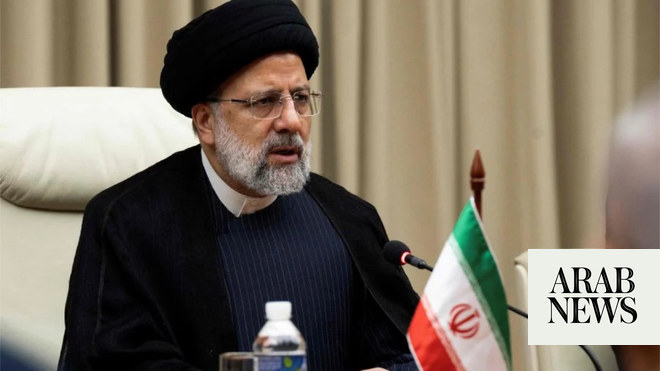
The Iranian proverb “spring does not come with one flower” applies to the fourth package of sanctions recently approved by the foreign ministers of the EU countries in response to a vote by the European Parliament that called for them to designate the Islamic Revolutionary Guard Corps as a terrorist organization.
The European calculations did not live up to the hopes of the Iranian people, who have risen up in protest at the regime’s killing of Mahsa Amini. Their protests have now turned into a revolution against the mullahs’ regime, which has been repressing the Iranian people for four and a half decades. The brutality with which the uprising is being repressed — as the authorities’ criminality has reached the point of shooting demonstrators in the eyes, as if they want to extinguish the light of the truth — has firmly established that this regime only understands the language of killing and oppression.
Although the sanctions package affected 37 entities affiliated with the mullahs’ regime, the decision did not live up to the European Parliament’s recommendation of designating the IRGC. This group is the Iranian regime’s thickest and most brutal stick. It is the one whose crimes transcend Iran’s borders. Its criminality inside and outside of Iran must be brought to an end.
If the politicians are falling short of calling the IRGC a terrorist organization, a court in an EU member state should issue a concrete legal conviction. This leads us to the question: What are European courts waiting for? Especially since the IRGC’s violations are visible from Iran to Yemen, passing through Iraq, Syria and Lebanon, along with its intervention in the Ukraine war on the side of Moscow, which it is providing with drones.
The EU retains scant hope of reviving the Iran nuclear deal, which has been suspended since the US withdrawal under former President Donald Trump in 2018, based on the background of Tehran’s lack of commitment. Trump discovered early on that this regime does not understand mild language and diplomacy, and must instead be dealt with firmly.
The brutality with which the uprising is being repressed has firmly established that this regime only understands the language of killing and oppression
Maria Maalouf
In line with its strategy, Washington announced late last month the imposition of new trade restrictions on seven Iranian entities that effectively contributed to the production of drones that Russia has used to bomb Ukraine. The Department of Commerce said that these companies engaged in activities that threatened the US’ national security and foreign policy.
Meanwhile, the US House of Representatives last month approved, by 420 votes in favor to just one against, a resolution condemning the suppression of demonstrations and protests in Iran, as well as supporting the protesters in achieving their demands. Rep. Claudia Tenney said: “In this resolution, we condemn the gross violation of human rights by the Iranian regime in its suppression of the demonstrators who rose bravely against this terrorist regime to demand their rights.”
It is worth mentioning that Washington also imposed a package of sanctions on many senior Iranian officials.
Gregory Meeks, ranking member of the House Foreign Relations Committee, addressed the Iranian people, saying: “Be strong because freedom will always triumph over tyranny.” For his part, CIA Director William Burns said during a meeting at Georgetown University in Washington: “The turmoil resulting from the widespread protests in Iran has led to confusion in the Iranian regime.” He also praised the “courage” of the Iranian women who are disappointed with the conditions in their country.
It has been proved that the mullahs’ regime in Iran is the world’s biggest state sponsor of terrorism. Therefore, the international community must move with greater force to counter this oppressive regime. The bombing of weapons factories in Isfahan and other cities, in addition to the bombing of convoys in Al-Bukamal, Syria, are just noise — it is time to mute them and unleash the freedom of the Iranians with full support.
• Maria Maalouf is a Lebanese journalist, broadcaster, publisher and writer. She has a master’s degree in political sociology from the University of Lyon. Twitter: @bilarakib












